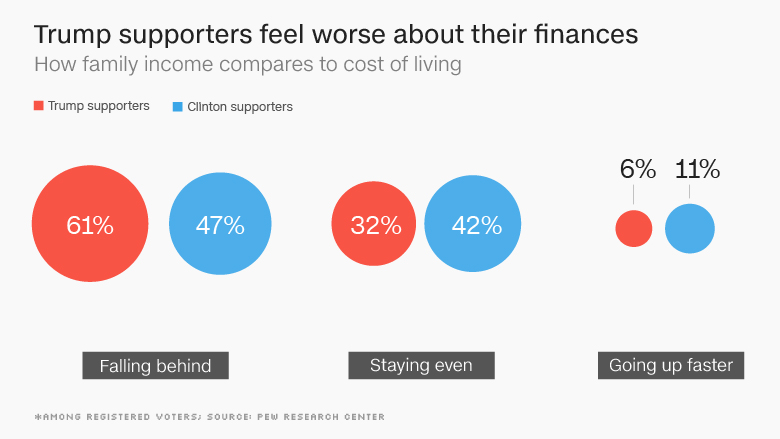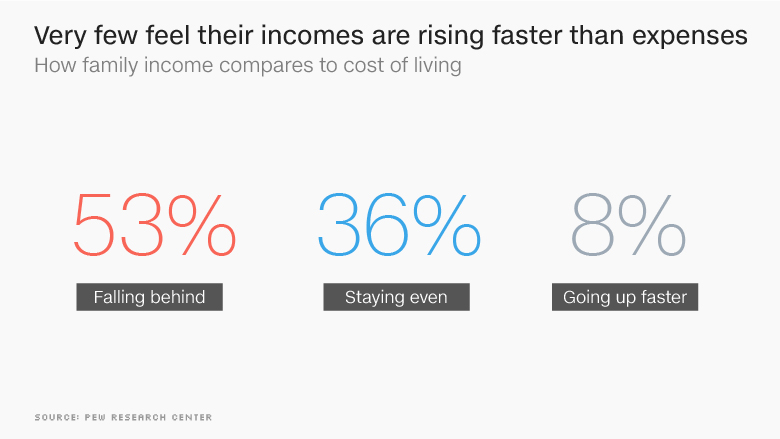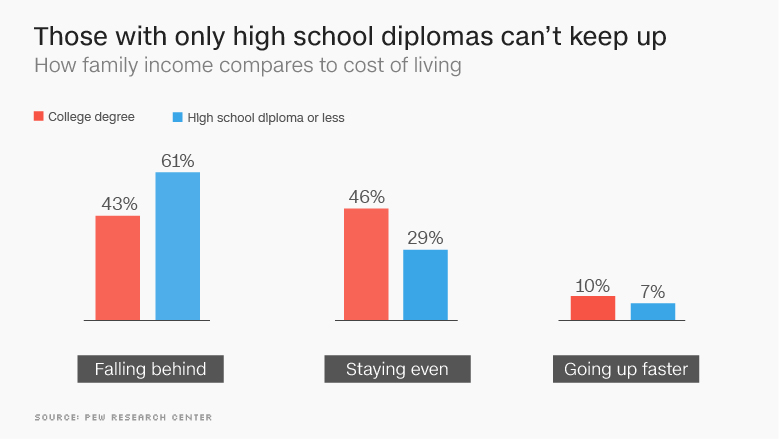
Americans who back Donald Trump for president have a much more pessimistic view of their own finances than Hillary Clinton's fans.
Some 61% of Trump supporters feel that their family income is falling behind the cost of living, compared to 47% of Clinton backers, according to a recent Pew Research Center report.
Trump voters are also less likely to think they are getting ahead. Only 6% said their income is going up faster than expenses, compared to 11% of Clinton supporters.
Related: The men America has left behind
Even higher-income Trump supporters feel gloomy about their finances. Nearly half of those earning $75,000 or more still feel they are falling behind, compared to just over a quarter of Clinton supporters in this income bracket.

Among all Americans, 53% feel their family income trails the cost of living, compared to 8% who feel their earnings outpace expenses. Another 36% feel they are staying even.

Americans are feeling a bit worse about their finances now than they were last December, when 49% felt they were falling behind and 42% said they were staying even. But their outlook is a little brighter than it was in January 2015 and October 2008, when 57% said their expenses were rising faster than their incomes.
Education makes a difference, but even college grads are feeling financial stress. Some 46% said they feel they are falling behind, while only 10% feel their incomes are rising faster than the cost of living.
Those with only high school diplomas or less are even worse off. Just over six in 10 say their incomes lag behind expenses, and only 7% say they are getting ahead.

Some 49% of Americans feel that jobs are difficult to find, which is actually the lowest level since just before the Great Recession began in late 2007. This measure peaked at 85% in March 2010. Meanwhile, 43% say there are plenty of jobs available.
Related: Fewer low-income men are working
Young Americans, ages 18 to 29, are the most optimistic about the job market. Half of those surveyed said there are plenty of jobs available. This compares to 47% for those ages 30 to 49, 41% for those ages 50 to 64 and 30% for senior citizens.
Pew conducted this survey in mid-June.


